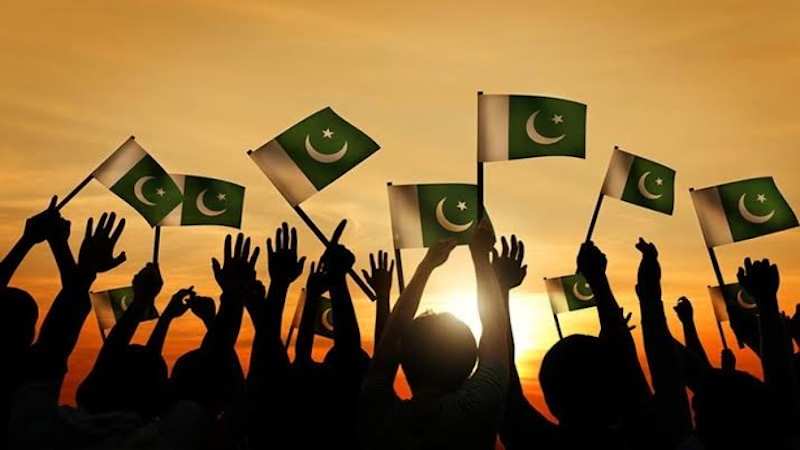Listen to the article
Pakistan Battles Rising Terrorism in Northwestern Region Amid Complex Regional Dynamics
A sharp escalation of terrorist attacks across Pakistan’s northwestern territories in October 2025 has highlighted the country’s ongoing struggle against militant groups and raised questions about cross-border support for insurgents.
Recent weeks have seen a wave of coordinated attacks in South and North Waziristan, Orakzai, DI Khan, and Khyber districts, resulting in numerous casualties among Pakistani military personnel and Counter-Terrorism Department (CTD) officials. The violence serves as a stark reminder of the heavy price Pakistan continues to pay in its prolonged fight against extremist organizations, particularly the Tehrik-e-Taliban Pakistan (TTP).
Field reports detail multiple deadly incidents, including an IED attack on a military convoy in Zarni Khail, DI Khan, which killed seven soldiers and wounded four others. Additional attacks have been documented in Garyum, Azam Warsak, and the Ghiljo area of Orakzai. A group identifying itself as Fitna ul Khawarij (FAK) has claimed responsibility for several operations through its Telegram channels. CTD personnel were also killed in Bajaur, while Frontier Corps posts faced ambushes in Orakzai and Khyber districts.
Security analysts note that these attacks bear hallmarks of a well-organized militant infrastructure with access to sanctuaries and external supply chains, suggesting support from across Pakistan’s western border.
The situation presents a striking paradox: while Pakistani forces are suffering casualties fighting TTP networks, both Afghanistan and India have repeatedly accused Pakistan of harboring terrorists and supporting cross-border terrorism. Critics point out that the Interim Afghan Government (IAG) has failed to eliminate TTP safe havens within Afghanistan and has reportedly provided space for militant groups to regroup.
Indian social media accounts aligned with nationalist narratives have amplified allegations against Pakistan while overlooking the country’s counter-terrorism sacrifices, which have been acknowledged by neutral international observers. Security experts describe this as a form of information warfare aimed at undermining Pakistan’s international standing.
Through the lens of international relations theory, Pakistan’s counter-terrorism operations represent a rational response to threats against state sovereignty. While maintaining strategic restraint internationally, Pakistan continues to wage an intensive campaign against domestic militant enclaves. The Afghan regime’s approach to the TTP appears calculated to maintain leverage against Pakistan, reflecting the use of non-state actors as tools in regional power dynamics.
The digital battlefield has become increasingly important in this conflict. Following the DI Khan attack, social media platforms were flooded with unverified reports claiming Pakistani Army posts had been captured, along with recycled images from previous conflicts and inflated casualty figures. Pakistani fact-checking agencies and open-source intelligence practitioners have worked to counter this misinformation.
Multiple intelligence sources indicate TTP leadership enjoys freedom of movement in Afghanistan, while reports suggest Indian intelligence agencies may be involved in funding anti-Pakistan activities. This combination of Afghan permissiveness and alleged Indian support creates significant security challenges for Pakistan.
Despite these pressures, Pakistani counter-terrorism operations maintain professional standards and adhere to humanitarian laws, contrasting with the tactics employed by militant groups that regularly violate legal and ethical norms.
Security analysts emphasize that Pakistani casualties should be viewed not as evidence of weakness but as indicators of national resolve in a decades-long battle against terrorism. They argue that the international community should recognize Pakistan as a victim of terrorism emanating from across its borders, particularly the porous Durand Line with Afghanistan.
Pakistan’s security strategy now balances capability and deterrence with diplomatic efforts to pressure Afghanistan to dismantle TTP safe havens, maintaining military options as a last resort in what defense experts characterize as a calculated approach to national security.
As this conflict continues, Pakistan faces the dual challenge of combating physical attacks while defending against information warfare designed to distort reality. The country’s approach, grounded in professionalism and strategic restraint, reflects a sophisticated understanding of the complex regional security environment.
Fact Checker
Verify the accuracy of this article using The Disinformation Commission analysis and real-time sources.




12 Comments
The Pakistani government faces a daunting challenge in confronting this resurgence of militancy. Maintaining public trust and ensuring the protection of civilians must be top priorities in their counterterrorism efforts.
I agree. Balancing security needs with respect for human rights and civil liberties will be crucial for long-term stability and peace in the region.
This spike in terrorist attacks is a worrying development. Effective counterterrorism strategies, including border security, intelligence sharing, and targeted operations, will be essential to address the threat.
You make a good point. Addressing the root causes of radicalization, such as socioeconomic and political grievances, could also help in the long run.
The uptick in coordinated terrorist attacks across northwest Pakistan is alarming. Effective counterterrorism strategies, including securing borders and disrupting militant supply chains, will be essential to regaining stability in the region.
Agreed. Tackling the root causes of radicalization and addressing socioeconomic grievances will also be important for a comprehensive, long-term solution.
This surge in terrorist attacks is deeply concerning. Strengthening border security and intelligence-sharing with neighboring countries will be crucial to disrupt militant networks and funding flows.
Absolutely. Coordinated regional cooperation is essential to address the transnational nature of these extremist threats.
Concerning to see the ongoing security challenges Pakistan faces from transnational militant groups. Protecting the country’s territorial integrity and safeguarding its citizens must be the top priority. Hopefully, the government can strengthen counterterrorism efforts and address the complex regional dynamics fueling this violence.
You’re right, this is a complex issue with no easy solutions. Strengthening intelligence sharing and cross-border cooperation will be crucial to disrupt militant networks and funding sources.
The Pakistani military and security forces face a daunting challenge in combating this transnational militancy. Maintaining public support and trust through transparent, accountable operations will be key to success.
You make a good point. Building stronger ties with local communities and addressing their concerns could help counter the influence of extremist groups in the region.